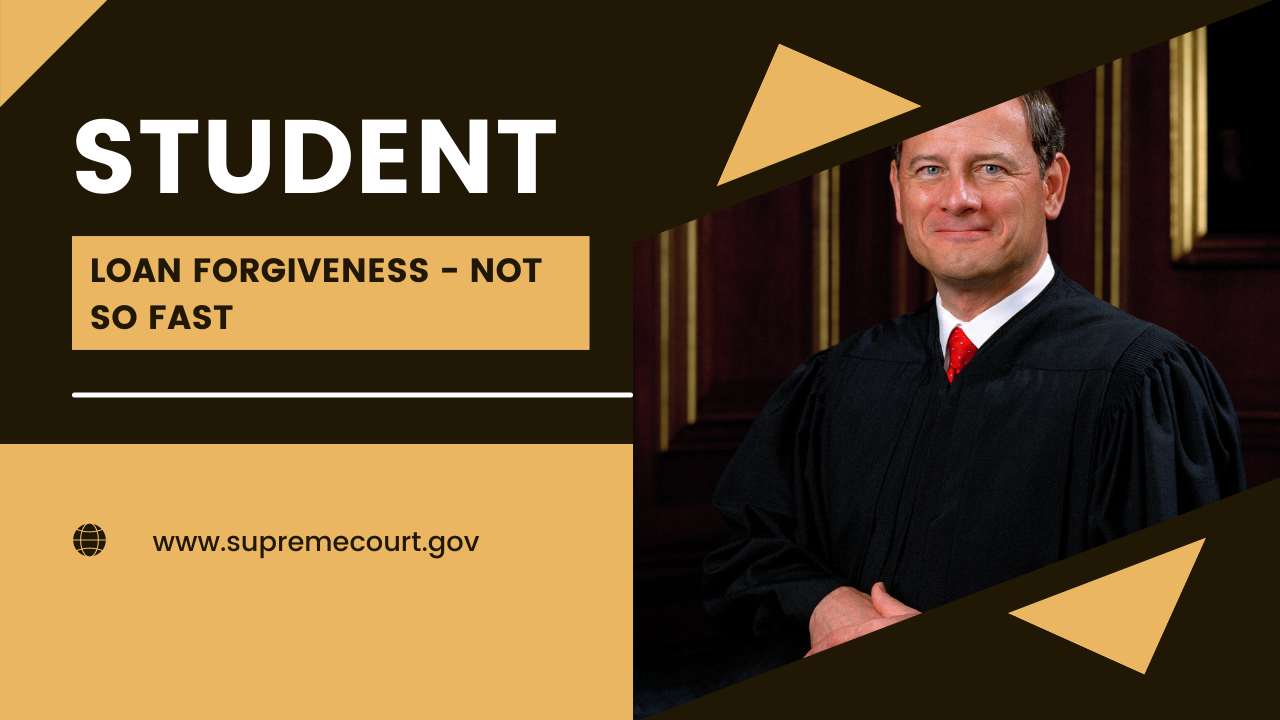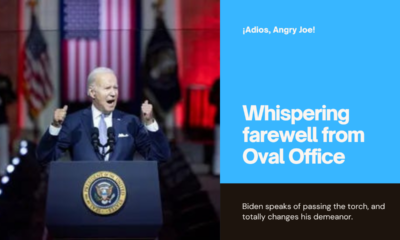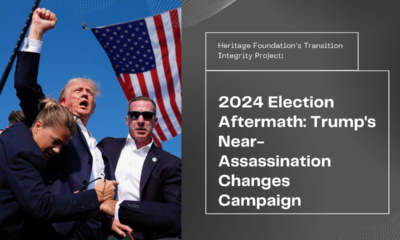Executive
Student loan forgiveness can’t happen, says SCOTUS
The Supreme Court struck down President Biden’s student loan forgiveness plan as exceeding the Education Secretary’s lawful authority.

The U.S. Supreme Court, on what should be its last non-argument day, struck down Biden’s student loan forgiveness plan. The Court held that the Secretary of Education lacked the authority under the HEROES Act to order such a plan.
Student loan forgiveness cases
The Supreme Court’s definitive ruling came in a student loan forgiveness case out of Nebraska. They issued a seventy-seven-page opinion: Biden v. Nebraska, 600 U.S. ____ (2023). The Court voted 6-3 that the Secretary of Education does not have the authority he claims to forgive student loans. Chief Justice Roberts delivered the opinion of the court. Justices Samuel A. Alito, Amy Coney Barrett, Neil Gorsuch, Brett Kavanaugh, and Clarence Thomas all joined him. Justices Ketanji Brown Jackson, Elena Kagan, and Sonia Sotomayor dissented, with Kagan writing the dissenting opinion. Justice Barrett wrote her own concurrence.
Six States had sued to block Biden’s student loan forgiveness plan. Though Nebraska was the lead plaintiff, Missouri was much more important. The Missouri Higher Education Loan Authority (MOHELA) would lose $44 million a year in loan service fees they could no longer collect. That’s a direct harm to that agency. Because MOHELA is an “instrument of the State,” Missouri suffers the harm along with MOHELA. Therefore, Missouri has standing.
The merits depend on the Higher Education Relief Opportunities for Students (HEROES) Act of 2003, a law going back to the aftermath of the September 11 Attacks. Biden instructed his Secretary of Education, Miguel Cardona, to issue HEROES Act waivers to college students, to effect the student loan forgiveness. The Supreme Court said Cardona proposed to exceed his authority. His actions would be tantamount to “rewrit[ing] the [Higher Education Act of 1965] from the ground up.”
Sequence of events
After Secretary Cardona announced his plan to waive student loans under the HEROES Act, six State filed suit. A trial court threw the Nebraska case out, saying no State had any standing. But the Eighth Circuit Court of Appeals issued a nationwide preliminary injunction. They found – as the Supreme Court agreed today – that Missouri had standing through MOHELA.
More than 100 House members signed a friend-of-the-court brief against the student loan forgiveness plan. On February 28, the court heard argument on the Nebraska case, and on another, similar case. Dept. of Ed. v. Brown, 600 U.S. ____ (2023).
The Brown case arises out of the eligibility rules of the plan. Myra Brown, who couldn’t get the loan forgiven, sued in the Northern District of Texas. The judge in that court also enjoined the plan, and the Fifth Circuit affirmed. So the Education Department went to the Supreme Court as well.
The Court held in the Brown case that Myra Brown and her fellow plaintiff, Alexander Taylor, did not have standing. Justice Alito, writing for a unanimous Court, found they couldn’t establish an injury traceable to the student loan forgiveness plan.
But that apparently does not matter, because the Court has found that Secretary Cardona exceeded his statutory authority.
The opinions
The Chief Justice’s opinion holds that even “the ordinary tools of statutory interpretation” do not give Secretary Cardona the authority he claims. Justice Barrett, in her concurrence, separately wrote that this case raised a “major question,” similar to that in a case from last year. (West Virginia v. Environmental Protection Agency, 597 U.S. ____ (2002).) As such, Congress needed to “speak clearly” to give the Secretary anything like the authority he claimed.
Justice Kagan, in a furious dissent, accused the Court of exceeding its own authority. According to her, what Cardona says, goes, and no court should interfere. Besides, she doesn’t accept that the State of Missouri had standing.
The language Kagan used, came very close to professional disparagement. Accordingly, the Chief Justice seemed to have felt the need to clear a Chief Justicial throat:
It has become a disturbing feature of some recent opinions to criticize the decisions with which they disagree as going beyond the proper role of the judiciary. Today, we have concluded that an instrumentality created by Missouri, governed by Missouri, and answerable to Missouri is indeed part of Missouri; that the words “waive or modify” do not mean “completely rewrite”; and that our precedent—old and new—requires that Congress speak clearly before a Department Secretary can unilaterally alter large sections of the American economy. We have employed the traditional tools of judicial decisionmaking in doing so. Reasonable minds may disagree with our analysis—in fact, at least three do. See post, p. ___ (KAGAN, J., dissenting). We do not mistake this plainly heartfelt disagreement for disparagement. It is important that the public not be misled either. Any such misperception would be harmful to this institution and our country.
CNAV recognizes the right of any reader to interpret the above however he likes. Nevertheless we sum up that paragraph in two words: “Watch yourself.”
Terry A. Hurlbut has been a student of politics, philosophy, and science for more than 35 years. He is a graduate of Yale College and has served as a physician-level laboratory administrator in a 250-bed community hospital. He also is a serious student of the Bible, is conversant in its two primary original languages, and has followed the creation-science movement closely since 1993.
-

 Executive4 days ago
Executive4 days agoSecret Service chief gets no solace
-

 Executive3 days ago
Executive3 days agoWaste of the Day: Louisville Taxpayers Pay Nearly $600,000 For Empty Building’s Maintenance, Security
-

 Guest Columns5 days ago
Guest Columns5 days agoFear Itself: Democrats’ Favorite Strategy Caused Their Current Chaos
-

 Executive3 days ago
Executive3 days agoWhere is Joe Biden – or Jill?
-

 Executive2 days ago
Executive2 days agoWaste of the Day: Throwback Thursday: Cities Used Crime Prevention Funds on Soccer Games, Paper Shredding
-

 Executive2 days ago
Executive2 days agoFacile and politically motivated suggestions
-

 Civilization5 days ago
Civilization5 days agoBuild Iron Dome in the United States To Prepare for Israel’s Worst Day
-

 Executive2 days ago
Executive2 days agoBiden makes farewell whisper














